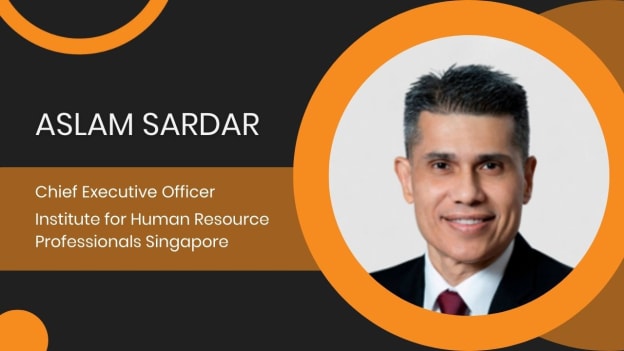The professional path forward for the HR function

The expectations placed on the HR function have been evolving at an accelerated pace since the COVID-19 pandemic, and individual professionals need to find ways of keeping up. On the sidelines of the Institute for Human Resource Professionals' (IHRP) People Behind People Forum a few weeks back, People Matters caught up with Aslam Sardar, the CEO of IHRP, and got his perspective on the future of HR in Singapore. Here's what he said.
What challenges do you think HR professionals are most likely to face in the next few years?
I think one of the main challenges arises from how the HR industry is evolving. Over time, an increasing need has developed for HR to be more at the forefront: to drive transformation, support business profitability and business success, to move from transactional HR to strategic HR.
Now, job redesign has entered the picture, and as we discussed in our People Behind People Forum in November, the importance of job redesign is amplified in today's world. That creates more urgency for HR to start to think hard about uplifting themselves and developing more capabilities. If you recall what the Minister for Manpower said during our conference – it is probably time to move away from a defensive playbook, and to take up an offensive playbook.
With this offensive playbook, do you see specific aspects of HR's work needing to change?
First and foremost, there must be some transformation within HR. For example, very basic transactional work like payroll administration, responding and replying to employees' inquiries, et cetera, can be automated or shifted to a self-service model.
And what can be automated, can be transformed. Once you free up HR professionals' time, they can dedicate themselves towards more engagement with the business. They can sit down with the business, understand the issues and challenges and the drivers of success, and then they can work on finding the kind of talent needed to support that. In a sense, HR's job is itself being redesigned.
Do you see any need to make changes in today's HR certifications to align with the new expectations of the work?
IHRP regularly reviews and updates the body of competencies upon which the assessment model is developed and anchored. This body of competencies is co-created by professionals within the HR industry in Singapore, and as the profession evolves, we may add new areas or remove some components that are outdated. From there, we may add, remove, or restructure certain questions in the assessment process.
A lot of HR leaders are taking on broader portfolios outside their own function that include legal capabilities, sustainability capabilities, and more. Do you see this trend becoming more prevalent?
I think increasingly, HR must do that, because that's how you speak the business language. Take for example, sustainability. Even though that's not directly related to HR, there are a lot of links between the two areas because under ESG (environmental, social and governance), social is all about people: human capital.
But I want to take a step to expand the concept a little. I do feel that it's not just HR that needs to build multidisciplinary capabilities. Many other roles today also need to do that. And that is one reason why you have to move away from a categorical qualification to a skills based qualification.
The only way you can build on your current competency is to acquire new skills. And those skills may not even necessarily be mainstream skills.
I also want to link this to the importance of career health. Because if you start to think of your career as a portfolio, as you stack your skills, you become more employable. You raise your personal value. You reduce the deflation of your skill sets over time. And you potentially could find adjacent opportunities that could be more rewarding for your career in the future.
Certification alone can't cover such a wide potential range, though. What's the path forward for practitioners?
Certification is always about your competency, based on the body of competencies and the practice that you're in. And certifications should always be viewed as the first entry point. Once you have that, the next step is to pursue continuous professional development (CPD). It is at the CPD level that you should actually look at how you continuously upgrade and update your capability.
Those familiar with CPD will know that we require practitioners to spend a minimum number of hours on developing their capabilities. But I think what is most important is the selection of the courses. So we do encourage individuals to take up courses that will actively help them add on to their skills level. IHRP supports our community in doing this by providing an ecosystem within which practitioners can seek advice and information, participate in programmes. Practitioners themselves can also speak to fellow professionals in the industry, see how their careers have developed, and then maybe emulate the role models that they admire or aspire to be.
On the topic of career development, how are you currently seeing people's careers developing?
By and large, we are seeing more interest in holders of the IHRP Certified Professional (IHRP-CP) certification upgrading recently. I think part of the reason is because IHRP is entering our eighth year next year, meaning that those who took their certifications in our earlier years are now qualifying to advance to the next level, which is the Senior Professional (IHRP-SP). So we do see a trend of people progressing through the certification route.
People Matters is the official media partner for PBP 2023.













